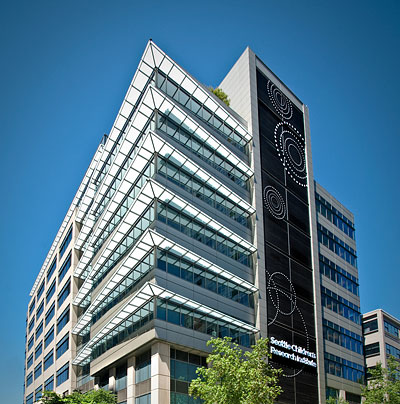Pilot 19 – Genomic and functional relevance of the CF microbiome in gastrointestinal polyps
P.I.: William DePaolo, PhD
Associate Professor, Medicine, Gastroenterology
As life expectancies of people with cystic fibrosis (CF) have increased due to advances in medical care, so have the rates of colorectal cancer (CRC). In fact, people with CF are diagnosed with adenomatous polyps earlier, and with higher rates of progression, than other CRC patients. In people without CF, significant alterations in the gut microbiota have been observed in CRC tissue relative to normal intestinal microbiota. In addition, microbial gene expression and function at sites of CRC differ compared to untransformed adjacent tissue, and between different types of cancers. Changes in the diversity and stability of the intestinal mucosa-associated microbiota have been also found in adults with versus without CF. Together, these findings raise the possibility that bacteria drive formation of adenomatous polyps and CRC, and contribute to the higher rates of these conditions observed in CF.
Recent studies by us and others in non-CF subjects have shown the power of studying the bacteria present in the microenvironment of pre-malignant lesions (polyps) to understand the potential carcinogenic effects of microbiota in CRC. However, differences in the identity, genetics and biological function of polyp-associated bacteria of CF patients and non-CF patients have not yet been investigated. In preliminary studies, we analyzed the composition, peptide mass spectra, and biological functions in vitro and performed whole-genome sequencing on the mucosal microbiota from 40 non-CF patients with colon polyps. This work identified bacteria associated with different polyp types as well as functional, genetic and proteomic differences between B. fragilis strains isolated from polyp-free patients and those isolated from patients with polyps. Specifically, polyp-associated Bacteroides fragilis isolates had distinct proteomes, formed more biofilms, and stimulated higher TNF-α production by macrophages in vitro than isolates from non-polyp tissue.
To identify potential causal relationships between the microbiota of CF patients and increased CRC risk, we propose to test the hypothesis that the microbiota of CF patients with polyps will be more oncogenic than in non-CF patients with polyps or CF patients without polyps due to genetic and/or proteomic differences that alter virulence, metabolism or behavior. To test this hypothesis, we will use culture-based approaches, 16S sequencing, and mass spectrometry to isolate, identify, characterize and create a library of clinically relevant bacteria with linked genomic and proteomic data from polyp-associated biopsies of CF patients and controls, focusing initially on B. fragilis based on our preliminary data. We will perform the following Aims:
Aim 1: Measure abundance and peptide mass profiles of polyp-associated bacteria in CF patients with and without polyps, and non-CF patients with polyps. This aim will test the hypothesis that the microbiota associated with the mucosal surfaces of polyp tissue of CF patients will differ compositionally and proteomically from those of CF patients without polyps and non-CF patients with polyps. We will use a combination of culture (with Host Microbe Core), 16S rRNA gene sequencing (with Genomics Core), and proteomic-based approaches to isolate, identify, characterize, and compare clinically relevant bacteria from this biopsy tissue from different patient types.
Aim 2: Identify genotype and phenotype relationships between bacterial species associated with CRC. This aim will test the hypothesis that bacterial species isolated from CF polyp tissue (obtained from Clinical Core) will have different pro-inflammatory activities, genotoxic properties, proteome profiles, and functional gene coding/content compared with species isolated from non-CF polyp and CF non-polyp mucosal biopsies. We will use a combination of in vitro phenotypic assays (with Host Microbe core), including those for cytokine/chemokine induction, biofilm formation, effect on epithelial cell proliferation, and reactive oxygen species production, as well as whole genome sequencing (with Genomics Core) to identify functional differences and putative genotype-phenotype associations to provide a biological framework for future studies.
Little is known regarding the etiology of CRC in patients with CF. Whether cause or consequence, there is a high likelihood that the microbiome is involved. These studies will assess the comparative biogeography of colon polyps in patients with and without CF and will allow us to identify clinically relevant species, genes, and phenotypes. It is hoped that the results could be used for the development of biotherapies targeting the microbiome and identify useful candidate microbial biomarkers of greater risk for developing CRC.

